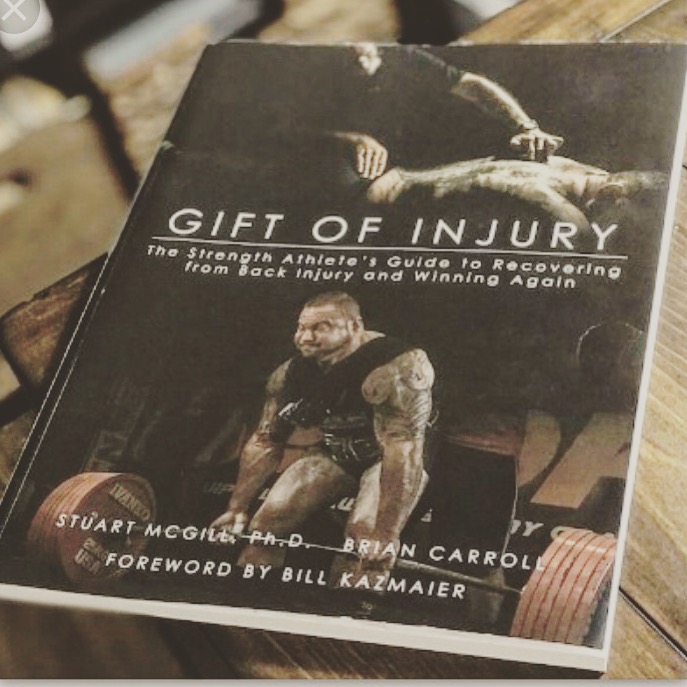05 Nov 4 R’s
By Mike De La Pava
At a certain level in your game, you will eventually start to program for yourself, or work with a great coach. Although I think all athletes, especially high-level ones should have a coach, I am going to list a few takeaways I have learned over the years when programming for myself (this can apply to programming for others, but that is a topic for another article). As much as it pains us all to see unqualified lifters coaching people into oblivion, let us not focus on the negatives. Instead, I hope to bring some ideas to the table that will help beginner and elite coaches alike. A lot of these notes I have not only learned in the trenches and under the tutelage of great coaches, but also by having great conversations with experienced lifters, therapists, and athletes (outside of barbell sports). Take into account that none of these rules or tips are set in stone and, as in all things sports related, should be molded into what works best for you and your body.

If you’re in the strength game for the long run, there is going to come a time when that honeymoon era ends. Lifts, competitions, and your bread and butter movements will no longer climb the way you feel they should. Aside from gaining more years in your “strength age,” you also have to take into account the amount of mileage on your body and your joints. It is also worth mentioning that as we age in sports and in “real life,” outside stressors like work, family, money, etc. start to climb as well. As I mentioned in previous articles, sometimes it is best to hunker down on the one variable we can control 100%… training. Below I am going to list a set of rules, tips, and go-to’s that will help add some longevity to the backbone of your programming. I made them all start with “R” because I wanted to be cute and make the article that much brighter, but don’t be fooled. Some of these are household standards we have heard for years, but neglect to adopt for ourselves over time (this guy was guilty as charged at one point).
Re-Read
The age-old rule. Although reading applies to anyone trying to better themselves, how often do we forget to go back and re-read? Just like that Boyz 2 Men love song that meant nothing to you until your girlfriend or boyfriend dumped you hard and now you can’t hear it without cringing. Going back to old books, notes, training journals, and articles is essential to the ever-evolving puzzle that is your body. Remember how far you’ve gone mentally and physically since the first time you read your favorite training books. Take a few days or weeks to go back, and you’d be surprised just how meaningful the old books still are and how differently they can impact you now.
Reassess Your Goals
I wish I could tell you I wasn’t guilty of this, but alas, I would be fibbing through my teeth. Despite so many years in sports, I can still get my goals caught up behind my passion. It is easy to set our goals initially, as most of us start a sport during our invincible years. But as the months and years pass on, we have to take the time to re-assess what we want. Relax, no one is telling you to quit or give up on the path you set out to crush. What I am trying to suggest strongly is that you take some time (hopefully before you write out your next training cycle) to assess what your short term and long term goals are. Even though you could be getting more beat up as the years go by, you are most likely more skilled and much stronger than when you started. This opens up the opportunity for you to achieve much larger and more complicated goals. Whatever your path may be, always make are sure to re-assess where you are and where you are going before you start writing out your training cycle. Take this into serious consideration.
Revisit the Past
Get in that Delorean, get to 80mph, and get your ass back in the future. Sorry, I love throwing movie stuff into my articles, and despite that being forced, I wanted to say it, haha! But in all seriousness, GO BACK! It is not ok that your previous notes, journals, and dry erase board scribbles about your training life is gaining dust somewhere in a corner. Just because you are moving on to a new phase in your training career does not mean you close the door on your previous cycles. I would argue the ONLY way to move forward is by seeing your previous work, numbers, and performance notes. I know of too many coaches and athletes who are so eager to start something new that they completely neglect the knowledge they have sitting right under their noses. The work that got them to where they are in the first place. Long story short? Pick up your previous training logs and notes and start reviewing what you need to improve on and hunker down. You’d be surprised how much you will learn from looking at your training instead of your 3 or 4 competition videos you can’t wait to post on “the gram.” Think heavily on this.
Revise as Needed
As Brian always says, nothing is linear. Too many times we fall victim to a concrete set of rules and programming, and before we know it, we are performing reps, sets, and percentages without asking questions or applying revisions. What does this mean, MDLP? For starters, I hope that most of you are keeping notes during your training, if not then consider punching yourself in the throat and START TAKING NOTES. That being said, as you start to get further into your training cycle there is absolutely NOTHING wrong with making some revisions to the upcoming days or weeks. Tweak a knee? Stop squatting for a few days. Funny little pop in the shoulder? There’s nothing wrong with taking out a massive overhead or bench for some dumbbell work as the inflammation settles. You see what I am getting at, right? How often do we bench when injured just because it is written in our program when we know damn well we shouldn’t be doing it? The end game means you’re in it for the long haul. Revise as needed and as many times as you want. No one is going to disable your Instagram account if you change your program. Don’t worry; I won’t tell anyone.

Those at the top of their game, as well as those just tying their lifting boots for the first time, will tell you that they are guilty of this. Make sure to do whatever it takes to keep your programming moving forward. You’re always one step away from making a great decision and many times it requires one small step back.
“Never Stray from The Way”
To read more from MDLP, check out his Author Page. If you’re interested in furthering your knowledge and picking up some invaluable resources to improve the quality of your training, one of the Book Bundles in the PRS Store is a great start!
Latest posts by Mike De La Pava (see all)
- MDLP: Training 8 weeks out - March 15, 2019
- MDLP: Deload week and Old Man Logan - March 6, 2019
- MDLP: Blood, Sweat and Flesh - February 28, 2019






Sorry, the comment form is closed at this time.